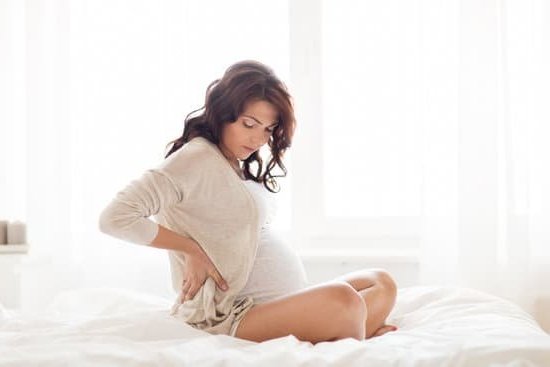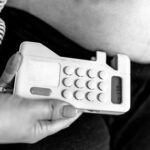How soon do pregnancy symptoms start? Many women wonder about the early signs of pregnancy as they eagerly anticipate the possibility of becoming a mother. Understanding these symptoms is crucial for recognizing the changes happening in your body and seeking proper care during this special time. This article will explore the various early signs of pregnancy, from physical to emotional symptoms, and provide insights into when they typically start.
The journey to motherhood begins with conception, and understanding the menstrual cycle can help shed light on the timing of early pregnancy symptoms. From there, we will delve into specific signs such as nausea, morning sickness, fatigue, changes in breasts and nipples, cravings and aversions, mood swings and emotional changes, as well as other physical discomforts like bloating, frequent urination, and headaches. By examining these symptoms in detail, women can better prepare themselves for the potential changes that lie ahead.
By gaining knowledge about how soon pregnancy symptoms start and what they entail, women can be proactive in their health care during this crucial phase. Whether it’s seeking medical advice or taking a pregnancy test at the right time, being informed about early pregnancy symptoms is key to ensuring a healthy and happy journey towards motherhood.
Understanding the Menstrual Cycle and Conception
The menstrual cycle plays a crucial role in understanding how soon pregnancy symptoms start. A typical menstrual cycle lasts about 28 days, but it can vary from person to person. Ovulation occurs around the middle of the menstrual cycle, usually between day 11 and day 21 for most women.
This is the time when an egg is released from the ovary and is available for fertilization by sperm. If the egg is fertilized by sperm, it then travels down the fallopian tube to the uterus where it implants into the uterine lining, leading to pregnancy.
For many women, the first indication of pregnancy is a missed period, which typically occurs around two weeks after conception. However, some women may experience early signs of pregnancy before their missed period. These early symptoms can include nausea, breast tenderness, frequent urination, fatigue, and food cravings or aversions. Keep in mind that not all women will experience these symptoms and some may not notice any changes until later in their pregnancy.
Understanding the menstrual cycle and conception helps to answer the question: “How soon do pregnancy symptoms start?” It’s important to be aware of your own body and its unique signs and symptoms. Paying attention to any unusual changes can help you determine if you might be pregnant and when to take a pregnancy test for confirmation.
| Early Pregnancy Symptoms | Timeframe |
|---|---|
| Nausea and Morning Sickness | Can start as early as 2-4 weeks after conception |
| Fatigue | May begin within the first few weeks of pregnancy |
| Breast Changes | Can occur as early as one to two weeks after conception |
Early Signs of Pregnancy
Nausea and morning sickness are two of the most well-known early signs of pregnancy. While these symptoms can vary from woman to woman, they typically start around the 6th week of pregnancy. Some women may experience nausea as early as 2 weeks after conception, while others may not experience it at all.
For many women, morning sickness is characterized by feelings of queasiness, particularly in the morning, although it can occur at any time of day. It can also be accompanied by vomiting. The exact cause of morning sickness is not fully understood, but hormonal changes during pregnancy are thought to play a significant role.
It’s important to note that while nausea and morning sickness are common early signs of pregnancy, not all women will experience these symptoms. Additionally, some women may experience them with one pregnancy and not with another. If you suspect you may be pregnant but have not experienced nausea or morning sickness, it’s still recommended to take a pregnancy test to confirm.
| Weeks After Conception | Potential Start of Nausea/Morning Sickness |
|---|---|
| 2 weeks | Possible start of symptoms for some women |
| 6 weeks | Typical start of symptoms for many women |
| Varying | Not all women will experience these symptoms |
Fatigue and Pregnancy
Fatigue is a common symptom experienced during the early stages of pregnancy. Many women feel extremely tired and find themselves needing to rest or nap more frequently. This can be one of the earliest signs of pregnancy, and it often begins around the same time as other early symptoms such as nausea and breast tenderness.
When Does Fatigue Typically Start During Pregnancy?
The onset of fatigue varies from woman to woman, but it typically starts around the 4th to 6th week after conception. This is when the body undergoes significant hormonal changes due to the implantation of the embryo in the uterine wall. The increase in progesterone levels can contribute to a feeling of exhaustion as the body works hard to support the pregnancy.
What Can You Do to Manage Fatigue During Early Pregnancy?
If you are experiencing fatigue as a result of early pregnancy, there are several things you can do to manage this symptom:
- Listen to your body and get plenty of rest
- Try light exercise such as walking or prenatal yoga
- Eat a balanced diet and stay hydrated
- Avoid caffeine and alcohol which can worsen fatigue
It’s important to remember that fatigue is a normal part of early pregnancy, but if you feel excessively tired or have concerns about your energy levels, it’s best to speak with your healthcare provider for personalized advice and reassurance. Understanding that fatigue is a common occurrence during this time can help alleviate worry and anxiety about this particular symptom.
Changes in Breasts and Nipples
Understanding Breast Changes
During early pregnancy, many women experience changes in their breast size, shape, and sensitivity. Some women may notice that their breasts feel tender or sore to the touch, while others may find that their nipples become more sensitive. These changes are often due to hormonal fluctuations as the body prepares for pregnancy.
When Do Breast Changes Start?
Breast changes can begin as early as 1-2 weeks after conception. Some women may notice these changes even before they miss a period. As the body starts to produce more estrogen and progesterone, the breast tissue begins to prepare for milk production, leading to noticeable differences in how the breasts feel and look. It’s important to note that not all women will experience the same degree of breast changes during early pregnancy.
Coping With Breast Changes
For some women, breast tenderness and sensitivity can be uncomfortable. Wearing a supportive bra and avoiding harsh soaps or lotions can help alleviate some of the discomfort. Women who are experiencing significant pain or changes in their breasts should consult with their healthcare provider to ensure that everything is progressing normally.
As women navigate through the early stages of pregnancy, it is common for them to experience various physical and emotional symptoms such as nausea, fatigue, mood swings, and frequent urination. Understanding these symptoms can help individuals recognize the signs of early pregnancy and seek appropriate prenatal care.
Cravings and Aversions
During the early stages of pregnancy, many women experience changes in their food preferences and appetite. These changes are often attributed to hormonal fluctuations that occur during pregnancy. It is common for pregnant women to develop strong cravings for certain foods, while also experiencing aversions to foods they once enjoyed. This can be a surprising and sometimes challenging aspect of early pregnancy for many women.
Hormonal Changes and Food Preferences
The hormonal changes that occur during pregnancy can have a significant impact on a woman’s sense of taste and smell, which in turn can influence her food preferences. For example, the hormone hCG (human chorionic gonadotropin) is known to play a role in triggering nausea and vomiting, which can lead to aversions to certain foods. Similarly, heightened levels of estrogen and progesterone can intensify a woman’s sense of smell, making certain odors more unpleasant than usual.
Coping With Cravings and Aversions
For many women, managing cravings and aversions during pregnancy involves finding ways to navigate their changing food preferences while still maintaining a balanced diet. Some may find it helpful to keep a variety of nutritious snacks on hand to satisfy cravings without overindulging in less healthy options. Others may need to experiment with different cooking methods or seasoning to make previously unappealing foods more palatable.
Seeking Support
It’s important for expectant mothers to remember that experiencing changes in food preferences is a normal part of pregnancy. However, if these cravings or aversions become overwhelming or lead to difficulties maintaining a balanced diet, it’s essential for women to seek support from their healthcare provider or a registered dietitian. They can provide guidance on how to manage these symptoms and ensure that both the mother and baby are receiving the necessary nutrients for a healthy pregnancy.
Overall, the relationship between hormonal changes and food preferences during early pregnancy highlights the complex ways in which the body adapts to support fetal development. By understanding these changes and seeking support when needed, women can navigate this aspect of pregnancy with confidence.
Mood Swings and Emotional Changes
Many women experience mood swings and emotional changes as one of the early signs of pregnancy. Hormonal fluctuations and the physical changes that occur in the body during pregnancy can impact a woman’s mental health. These changes can start as early as one or two weeks after conception, due to the increased levels of estrogen and progesterone in the body.
During early pregnancy, women may find themselves experiencing intense emotional highs and lows, feeling more irritable, or having unexplained bouts of crying. The sudden surge in hormones can also lead to increased anxiety and stress. It is important for women to understand that these emotional changes are normal during pregnancy and that they are not alone in experiencing them.
Additionally, some women may find that they are more sensitive to external factors such as stress, environmental stimuli, or even conflict with others during the early stages of pregnancy. This heightened sensitivity can contribute to mood swings and emotional changes.
Seeking support from loved ones, practicing relaxation techniques, and maintaining open communication with healthcare providers can help manage these emotional challenges during early pregnancy. If feelings of anxiety or depression become overwhelming, it is essential to seek professional help for mental health support throughout the pregnancy journey.
Other Early Pregnancy Symptoms
Many women wonder about how soon do pregnancy symptoms start, and while nausea, fatigue, and breast tenderness are commonly discussed early signs of pregnancy, there are other symptoms that may also indicate a possible pregnancy. These symptoms can vary from woman to woman, but some may experience bloating, frequent urination, and headaches in the early stages of pregnancy.
Bloating
One of the early signs of pregnancy is bloating. This can be attributed to the hormonal changes happening in the body as it prepares for pregnancy. The increase in progesterone levels can cause the gastrointestinal tract to relax, leading to slower digestion and bloating. Additionally, the expanding uterus can put pressure on the intestines and contribute to feelings of bloating and discomfort.
Frequent Urination
Another common symptom experienced by women in early pregnancy is frequent urination. This symptom is caused by hormonal changes that lead to increased blood flow through the kidneys, resulting in more urine production. The growing uterus also puts pressure on the bladder, causing the need to urinate more frequently than usual.
Headaches
Headaches can also be an early sign of pregnancy for some women. Hormonal changes, increased blood volume, and changes in blood circulation can all contribute to headaches during early pregnancy. Additionally, factors like stress and fatigue that often accompany early pregnancy can also trigger headaches.
It’s important to note that these symptoms are not exclusive to pregnancy and can be caused by other factors as well. However, if you experience these symptoms along with other signs of pregnancy such as missed periods or positive home pregnancy tests, it may be time to consult with a healthcare professional for confirmation.
Conclusion
In conclusion, early pregnancy symptoms can vary greatly from woman to woman, and it’s important to remember that not all women will experience the same set of symptoms. The most common early signs of pregnancy include nausea and morning sickness, fatigue, changes in breasts and nipples, cravings and aversions, mood swings and emotional changes, as well as other physical symptoms such as bloating, frequent urination, and headaches.
It is crucial for women to monitor their bodies carefully for any signs of pregnancy, especially if they are actively trying to conceive.
Understanding the menstrual cycle and conception can help women recognize when it might be time to take a pregnancy test. Typically, pregnancy symptoms start to become noticeable about a week after a missed period. However, some women may experience symptoms even before they miss a period. It’s important for women to listen to their bodies and seek medical advice if they suspect that they may be pregnant.
Ultimately, the decision of when to take a pregnancy test is a personal one. If a woman suspects that she may be pregnant based on her symptoms or missed period, it’s recommended that she takes a test at home or visits her healthcare provider for confirmation. By being aware of the early signs of pregnancy and seeking proper medical care, women can ensure the best possible outcomes for themselves and their future children.
Frequently Asked Questions
What Symptoms Do You Have at 1 Week Pregnant?
At 1 week pregnant, most women may not experience any noticeable symptoms yet. Since conception typically occurs during the second week of a woman’s menstrual cycle, it is unlikely for pregnancy symptoms to manifest this early.
How Soon Can You Get Symptoms of Pregnancy?
Symptoms of pregnancy can start as early as one to two weeks after conception. This means that some women may begin to notice signs like fatigue, breast tenderness, nausea, or frequent urination quite soon after getting pregnant.
How Soon Can You Know if You’re Pregnant?
You can know if you’re pregnant as early as a few days before your missed period by taking a home pregnancy test. These tests work by detecting the presence of the hormone hCG in your urine, which is produced by the placenta shortly after a fertilized egg attaches to the uterine lining.

Welcome to my fertility blog. This is a space where I will be sharing my experiences as I navigate through the world of fertility treatments, as well as provide information and resources about fertility and pregnancy.





